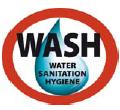/topics/demand-and-consumption
Demand and Consumption
Mapping potential groundwater zones using remote sensing and GIS techniques
Posted on 01 Mar, 2013 11:43 AMAuthor: K.M.Seenivasan
Assessing the land use change and its impact on water resources: A study on the Mula and Mutha rivers catchment area in Pune
Posted on 17 Feb, 2013 09:11 PMLand use changes hydrologic system and have potentially large impacts on water resources. An assessment in an area with seasonally limited water availability and which is subject to rapid socio- economic development and population growth will provide an exemplary view on the local impacts of major recent developments in India. In this backdrop this paper analyzes past land use changes between 1989 and 2009 and their impacts on the water balance in the Mula and Mutha Rivers catchment upstream of Pune. The aim of the paper is:
- assess the land use changes between 1989/1990 and 2009/2010
- analyze the impacts of these changes on the long-term water balance components in the Mula and Mutha Rivers catchment upstream of the city of Pune.
National water policy views water as an economic good: Resistance shown by civil society with the move towards increasing the water and sewerage tariff- Bimonthly newsletter by India WASH Forum
Posted on 04 Jan, 2013 10:24 PM
This edition of the India WASH Forum has the following highlights:
Water science in India - Hydrological obscurantism - A paper in Economic and Political Weekly
Posted on 07 May, 2012 12:15 PMThis article by Jayanta Bandyopadhyay in the Economic and Political Weekly deals with the Government of India’s proposal for addressing the twin problems of floods and water scarcity by interlinking rivers.
"Excreta Matters" - A profile of the water and sewage situation in 71 Indian cities - A report by the Centre for Science and Environment
Posted on 02 May, 2012 12:24 PMGuset post: Amita Bhaduri

Source: Excreta Matters, Centre for Science and Environment, 2012
Adaptive sustainable agriculture: Crop system intensification in Andhra Pradesh
Posted on 30 Apr, 2012 07:01 PMWOTR has been extensively promoting sustainable agriculture practices as part of its adaptive sustainable development approach. The objective is to promote low external inputs, increase land productivity, use of indigenous seeds, and reduce cost of cultivation.
Sikkim’s organic farming to feature in Satyamev Jayate, Aamir Khan’s first television project on DD1
Posted on 27 Apr, 2012 11:36 AMArticle and Image Courtesy : iSikkim
Precious Kaveri water down the drain; wasted to wash vehicles: Letter to the Chairman, Bangalore Water Supply and Sewerage Board
Posted on 23 Apr, 2012 12:47 PMDear Chairman BWSSB,
A framework for rural drinking water quality management, based on experiences from the voluntary sector - A learning document by Arghyam
Posted on 20 Apr, 2012 04:33 PMThe phases that have been identified for a sustainable WQM programme are:
(1) Assessment of baseline situation
(2) Participatory planning
(3) Water quality monitoring
(4) Implementation
Water supply and demand management of the Indus basin : Options for current and future sustainable water resources management
Posted on 17 Apr, 2012 12:04 PMArticle Courtesy : Hydrology and Earth System Sciences (HESS)
Authors : A.N. Laghari, D.Vanham, and W.Rauch





